How can I find suppliers by visiting China?
In previous posts, I’ve outlined the four main ways to find Chinese suppliers online. In reality, however, many people will prefer to travel to China to source products in person rather than just online. For those who have not yet set foot in China, or who lack experience in sourcing products from China, finding the right suppliers in person can be a daunting task. With this in mind, the purpose of this article is to introduce three effective ways to find reliable suppliers and original manufacturers by visiting China on the ground, and to share the practical strategies and techniques that most professional importers use in their dealings with suppliers and manufacturers.
A Practical Guide to Traveling in China
- Understanding Immigration Policies
In light of the COVID-19 outbreak, several countries around the world have implemented border closures at times. Therefore, the first thing you should do before planning to travel to China is to confirm that you have legal permission to enter or leave the country. This information can be obtained through your country’s Chinese embassy or consulate to ensure that your trip is up to date with the latest policy requirements.
- Prepare for a VPN service
Access to major international websites such as Google, Facebook and YouTube is limited in mainland China. To ensure that your electronic devices can access these services while you are on the road, it is recommended that you have a reliable VPN software installed in advance - Astrill is not free, but it is stable and is one of the best choices for many travelers.
- Solve language communication problems
In the face of language and cultural differences, an efficient translation app will be a great help. iFLY Voice Translator is highly recommended for its real-time English and Chinese translation features, and is completely free of charge. Of course, if your budget permits, hiring a professional translator (around $50 to $100 per day) will provide you with a more accurate and efficient communication experience.

1. Find quality suppliers at Chinese trade shows
Regardless of the size of your organization, participating in trade shows is always a prime way to discover quality suppliers offline. In China, these trade shows are particularly prolific, providing buyers with a platform to connect directly with manufacturers or trading companies, often at competitive prices for low order quantities (around US$500 to US$1,000 per product).
Overview of Trade Fairs in China
China hosts thousands of trade fairs each year, which can be broadly categorized into two types: comprehensive and specialized. The Canton Fair (China Import and Export Commodities Fair) is the leading comprehensive trade fair, with a wide range of products, and is held in Guangzhou in two sessions each year, each of which is divided into three phases, with different product categories on display in stages, with short intervals between sessions, so it is important to organize your trip so that you can cover all your points of interest.
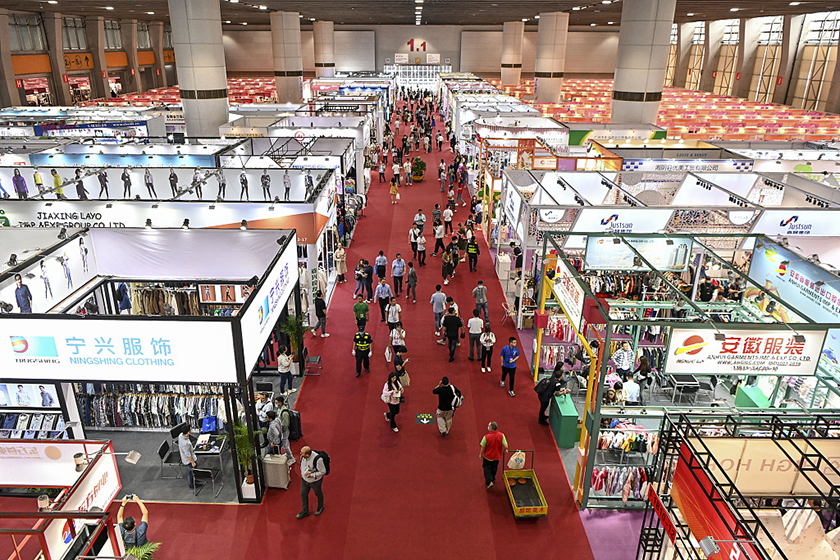
Hong Kong: Another choice for trade fairs
In addition to the Canton Fair, Hong Kong is a popular location for specialized trade fairs, which are particularly suitable for finding industry-specific suppliers. Below is a selection of a few noteworthy shows:
- Hong Kong Electronics Fair (Spring/Autumn): Held in April and October at the Hong Kong Convention and Exhibition Center, respectively, the fair is a paradise for electronics buyers and perfectly bridges the gap between the Canton Fair.
- Hong Kong Gifts & Premium Fair: held in April, with a wide range of products covering electronic products, toys and gifts, etc., right between the second and third spring phases of the Canton Fair.
- Mega Show (actually Hong Kong International Autumn Sourcing Fair): Held in October, it is the largest sourcing event in the Asia-Pacific region, covering a wide range of areas such as gifts and housewares, and fills the gap between the Canton Fair in the fall.
All of these Hong Kong shows are cleverly timed to coincide with the Canton Fair schedule, and it is recommended that you apply for a Chinese visa to make it easier to visit Guangzhou and Hong Kong at the same time during April and October, with the train commute between the two taking just an hour.
More Trade Show Information
For more information on trade shows, see our comprehensive guide to trade shows in China, or search online at 10times.com, the world’s leading trade show information platform, or at Qufair.com, which is in Chinese, but with Google Translate, you can easily access valuable information.
Trade Show Negotiation Tips
For first-time trade show buyers, the following tips may be helpful:
- During the show, take note of minimum order quantities, prices and supplier contact information for products of interest in preparation for subsequent negotiations.
- Buy samples at the end of the show to get the best price, as suppliers tend to sell rather than bring back exhibits.
- After the show, negotiate the final price and purchase volume with the supplier in depth, so that you can have more time and space to get a lower price, which is more favorable than placing an order on the show floor.
2. Find quality suppliers in China wholesale market
Wholesale markets are a great place to find suppliers, especially for those who can’t attend trade shows or who only need to purchase small quantities of a wide range of products. There is a wide range of products available, minimum order quantities are relatively low, and sometimes you can even get lower prices than at trade shows or online platforms such as Alibaba.
Choosing the right wholesale market
There are many wholesale markets across China, but not all of them are worth visiting. more than 99.5% of wholesale markets are mainly for local small-volume wholesalers, with a relatively limited size and variety of products. Here are some large wholesale markets worth exploring:
Yiwu International Trade City
- Scale and Influence: The world’s largest wholesale market for small commodities, with 50,000 suppliers, open all year round, with only 15 days off during the Chinese New Year.
- Customer Composition: 50% of the customers are from overseas and 50% from China, attracting many foreign importers to stay in the market for a long time.
- Market Layout: Yiwu International Trade City is a 5.5-kilometer-long, 4-story building, where all kinds of products are displayed in different zones, which makes it easy to find what you need quickly. In addition to the International Trade City, Yiwu also has specialized markets such as machinery and fabrics, which are less famous but affordable.
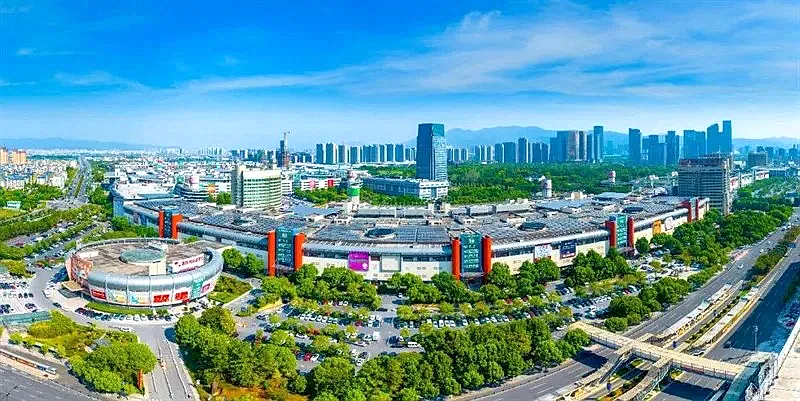
Guangzhou Wholesale Market
- Product Advantage: It is dominated by products such as clothing, shoes, bags, cosmetics and watches. Most of the manufacturers of these products are concentrated in Guangzhou and the surrounding areas, which provides an abundant supply of goods at advantageous prices.
- Market Characteristics: The market is decentralized with a wide variety of products, but this also leads to difficulties when looking for specific products or comparing prices. Familiarizing yourself with the wholesale environment takes more time and it is advisable to prepare and research well before coming to China in order to improve sourcing efficiency.
- Exchange of experience: Guangzhou has many foreign buyers who have lived here for a long time, and exchanging ideas with them can provide valuable sourcing experience and advice.
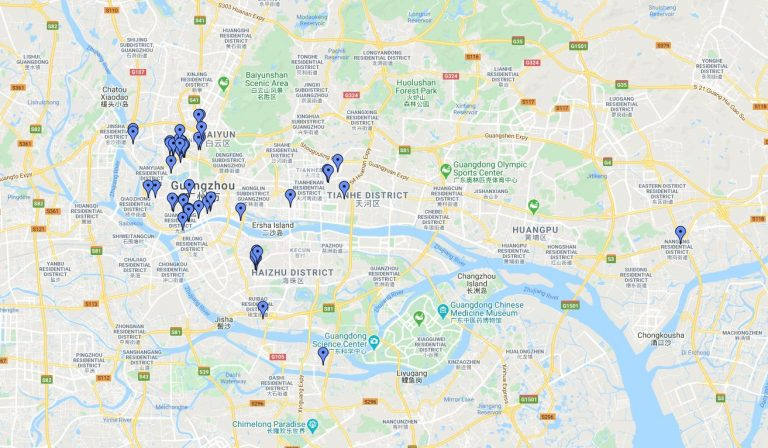
Wholesale Markets in Other Cities
Shenzhen Huaqiangbei Market
- Status of electronic market: the largest electronic market in the world, with nearly 50 electronic markets, where you can buy all the parts and components needed for assembling cell phones.
- Advantage: Hardware manufacturers gathered, can quickly replicate the products of large manufacturers, suitable for electronic product buyers.
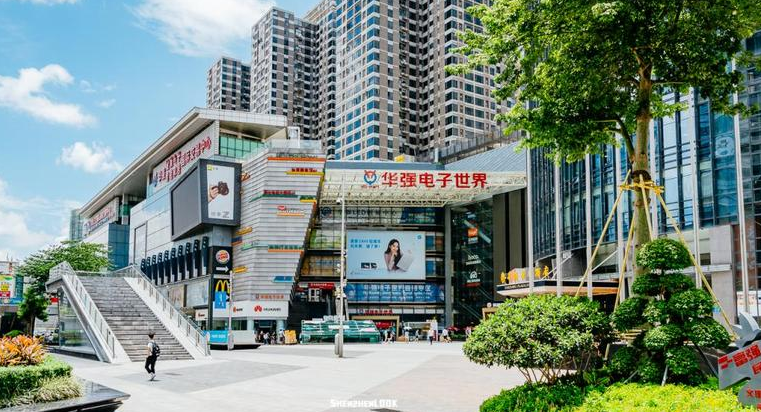
Shaoxing Keqiao Fabric Wholesale Market
- Scale of fabric trade: the world’s largest fabric trade place, providing all kinds of textile and garment fabrics, home textiles and industrial textiles.
- Market Relationships: With nearly half of the country’s textile enterprises to establish production and marketing relations, is the first choice for purchasing fabrics. Keqiao, Shaoxing is only 90 kilometers away from Yiwu, making it easy to visit both markets at the same time.
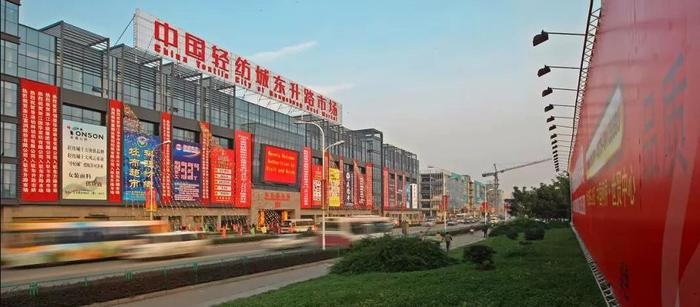
3. Efficient supplier sourcing by exploring industry clusters
Why choose clusters?
The core objective of sourcing suppliers in China is to obtain high quality products at competitive prices. Direct, original sources of supply are often the key to achieving this goal. As a result, many buyers are committed to tapping into genuine original manufacturers to eliminate intermediate links and minimize sourcing costs.
Industry clusters are exactly where such manufacturers gather. Since manufacturers producing similar products tend to concentrate in the same area, they are able to share supply chain resources and employ workers with specialized experience, thus taking advantage of cost control and production efficiency.
Advantages of industrial clusters
- Cost-effectiveness: Manufacturers within a cluster reduce costs by sharing resources and provide more competitive offers to buyers.
- Quality and Efficiency: Specialized division of labor and accumulation of experience ensures product quality while improving production efficiency.
- Supply Chain Integration: Close partnership promotes the integration and optimization of the supply chain.
How to locate and expand clusters?
Positioning methods:
- Online search: Using platforms such as Alibaba, search for target products and filter out the provinces with the highest concentration of suppliers.
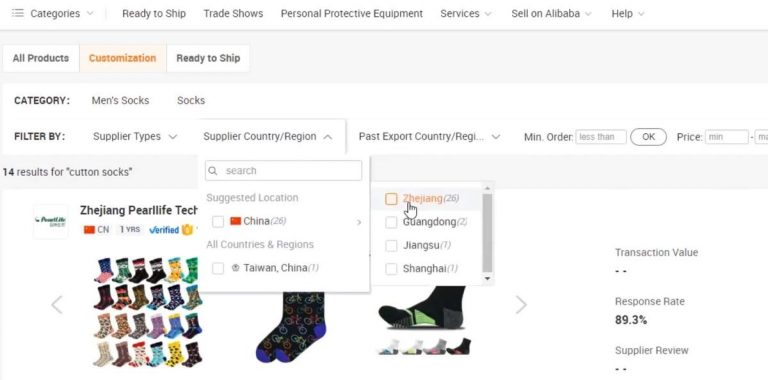
- Supplier information analysis: Focus on the first word of the supplier’s name to identify the city or province in which it is located. Count the regions with the highest frequency of occurrence.
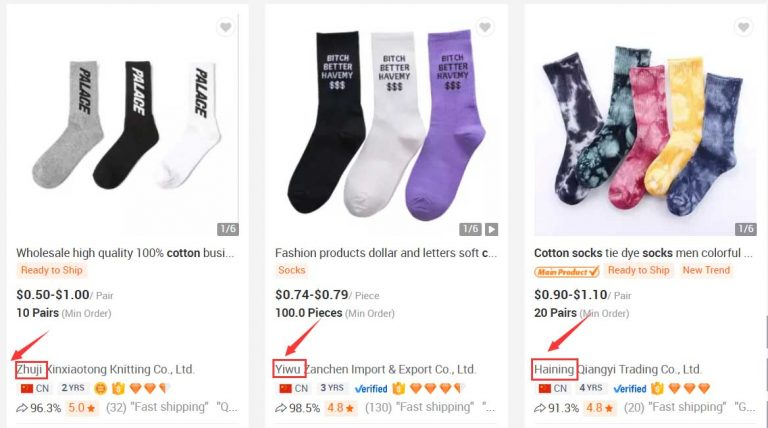
- Address Confirmation: Visit the supplier’s contact page to verify their operational address. Frequent towns or industrial areas are often home to industrial clusters.
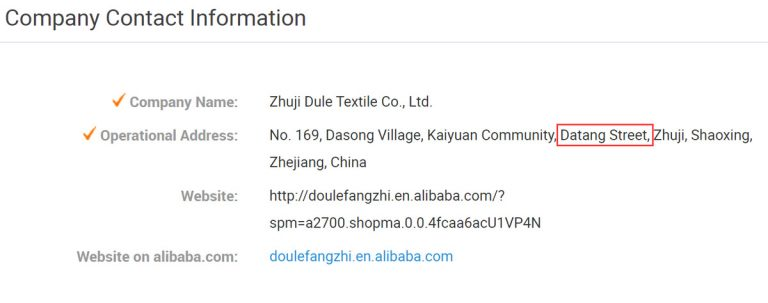
Expansion strategy:
- Site visits: once a cluster is identified, site visits are recommended to establish direct contact with manufacturers.
- Network building: Talk to locals within the cluster for help. Paid wizards may take you to more potential manufacturers.
- Ongoing assessment: Regularly assess supplier performance to ensure product quality and price competitiveness. Keep an eye on emerging manufacturers and technology trends within the cluster.
By pinpointing and expanding clusters effectively, buyers can find quality original manufacturers more efficiently and optimize cost and quality.
Get Your Free Quote
We connect you with trusted factories, secure the best quotes, and deliver straight to your doorstep.